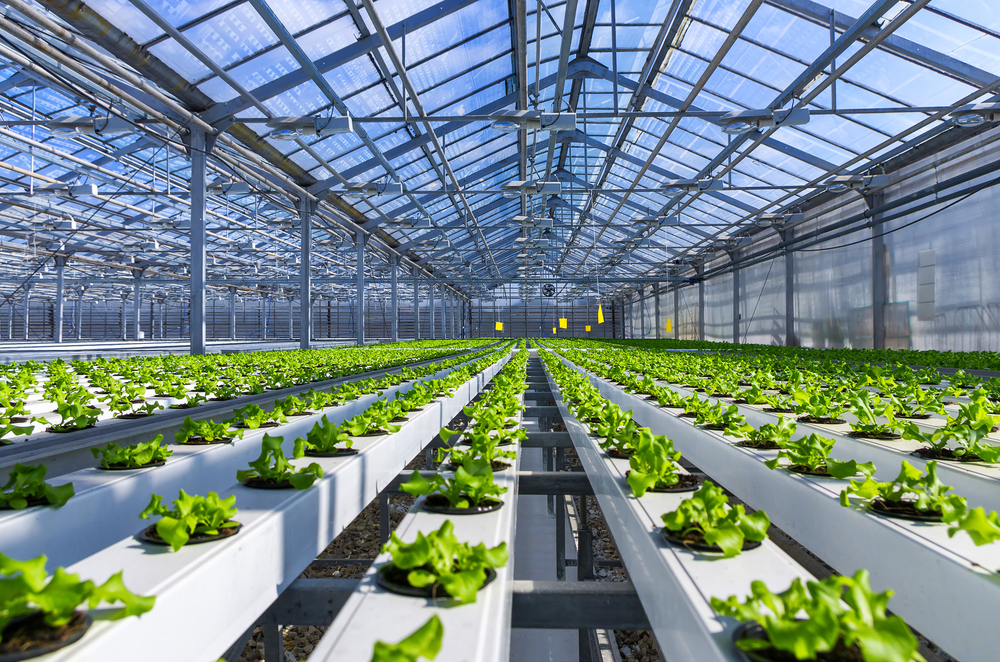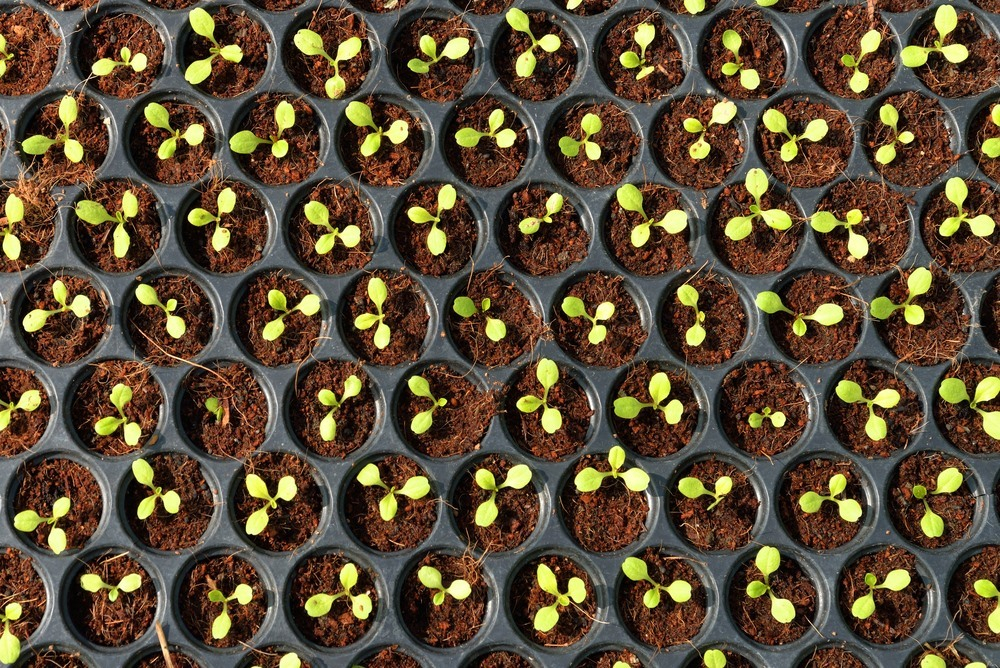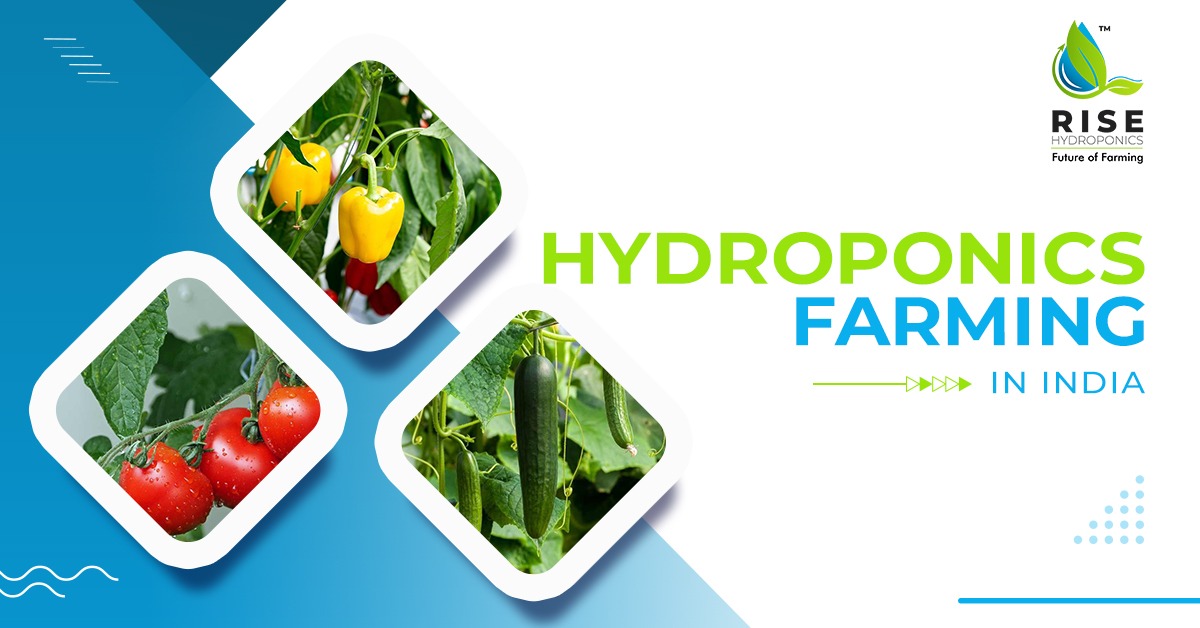If you follow the news these days, you will notice how every channel highlights the impending danger of climate change. And, we all know that this disaster was always in store given the ever-deteriorating state of fossil fuels, clean air, water, and other resources. But, hydroponics is one of the ways to maximize the usability of the available resources. This contemporary horticulture method to grow plants without soil saves resources, and in India is the best thing that can happen.
That is because Indian Agriculture has always been driven by variables- skilled labor, water availability, seed, soil quality, and weather. Additionally, the increase in the rate of food production has always been at the water supply’s expense. As per some estimates, over 70 percent of the freshwater sources are used up in agriculture. And, not just that, would you believe that 70 percent of the water contamination is also a result of agriculture? With technology integration in agriculture, you can grow food in the urban towns through hi-tech hydroponic farms and urban farming. Believe it or not but, hydroponic farming is slowly becoming the potent solution to enhancing nutrition besides dealing with food chain supply disruptions.
Why is Hydroponics farming a better model of business in India?

The reasons behind the global and widespread adaptability of Hydroponics in India lie in its multitude of advantages. For instance, this farming method requires very little labor but delivers higher yields. Plants grow faster in comparison to regular farms.
Another potential of this farming lies in the fact that there are multiple cycles of crops in a single season. Hydroponics uses less water, which is around 20% of the amount you use in the conventional cropping methods.
Another critical positive of this soilless farming method is that it can be implemented in a limited space. Moreover, the plants you grow are not dependent on the external weather as you control the ambient temperature manually.
In a country like India, hydroponics is no less than a blessing in disguise because we all know that agriculture here is heavily dependent on monsoons. Hydroponics farmers can grow out-of-season crops, provide a tremendous amount of food, and spoil consumers’ nutritional choices.
You have to stack the plants vertically because the surface area does not limit this farming method. If you want to grow condiments and herbs, there is nothing as profitable and practical as hydroponics farming. As you can produce your crops indoors and there are slim chances of a pest attack.
We all know how the Indian west coast is the worst affected due to the locust attacks. Lastly, seeds do not have to thrust through the soil mechanically. Thus, hydroponics facilitates less crop growth time and less maturation.
This technology is promising and gaining traction, but the initial setup costs can be slightly higher. However, all these infrastructural costs like that of the structure, sensors, water pumps, grow lights, and plumbing system, are one-time costs.
DID YOU KNOW? The central Government in India is promoting subsidies to hydroponic farms. And, we are glad to let you know that we have indeed come a long way. We believe that this technology will gain widespread acceptance.
What goes behind the setup?

A hydroponic setup includes the following:
- Germination tray
- Clay ball
- Seeds
- Reservoir
- Growing medium
- Delivery system
- Nutrient solution
- Air pump
- Climate control
Hydroponics farming setups can be both passive and active. Active signifies that a pump will move the nutrient solutions. Passive is wick-based or growing media’s anchor. The hydroponic systems can be categorized as non-recovery and recovery. Recovery means you will be able to reuse the nutrient solution back into the system, while non-recovery means applying the solution to the growth media. The nutrient solution’s management and its application to hydroponics plants fall into two fundamental categories.
Closed systems will re-circulate the nutrient mix from moment to moment, while open systems will not re-circulate the mix. The closed systems include both sophisticated and straightforward hydroponics setups, and here they are:
Nutrient Film Technique (NFT)
This system involves a continuous solution film of the nutrients that flow over the thriving roots. That results in forming a thin nutrient solution film around the plants’ roots, supplying both nutrients access and aeration.
Ebb and Flow
Ebb and Flow systems is the most popular hydroponic set up as it is low cost and low maintenance. Farmers use this system for potted plants and plug production. In this hydroponics system, you flood the growing bed with nutrient mix and then let it drain. The nutrient flooding frequency and duration depend on factors like plant requirements, water, container size, and the growth medium used.
Wicking
This hydroponics setup is a passive one. Here a wick runs from the plant container’s base right down to a reservoir. Later, it fetches the solution upwards up to the developing crops.
Deep Water Culture (DWC)
One of the easiest hydroponics system setups has to be the DWC. In this setup, the hydroponics plants are directly suspended in a nutrient mix enriched with oxygen.
Conclusion
Hydroponics farming has indeed gained popularity in India largely because the traditional farming methods have become non-remunerative. Soil is less fertile and water is scarce thus many new-age startups have entered into the hydroponics farming space and aim to keep up the food production despite the water crisis. With proprietary technology in place and by controlling the important parameters associated with this soilless farming method, Indians are effortlessly growing crops like carrots, gourds, and brinjals.

